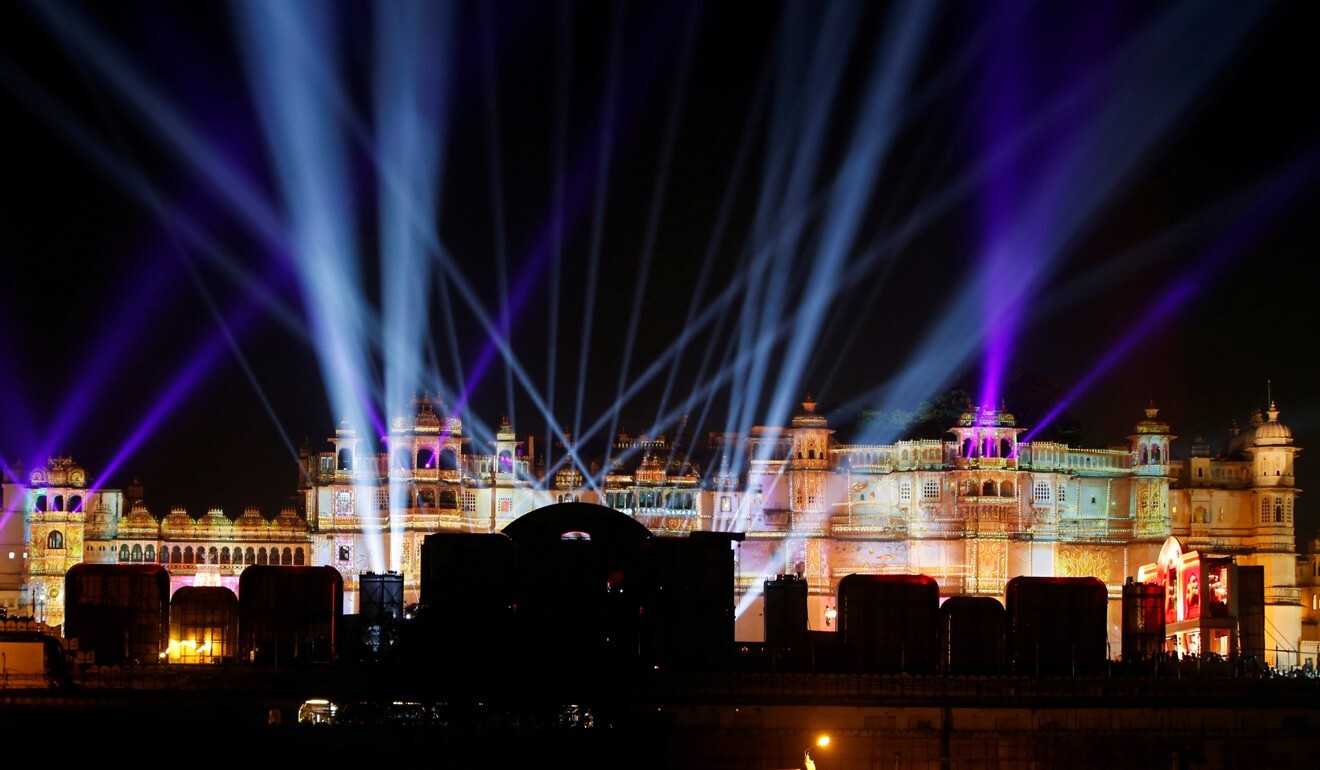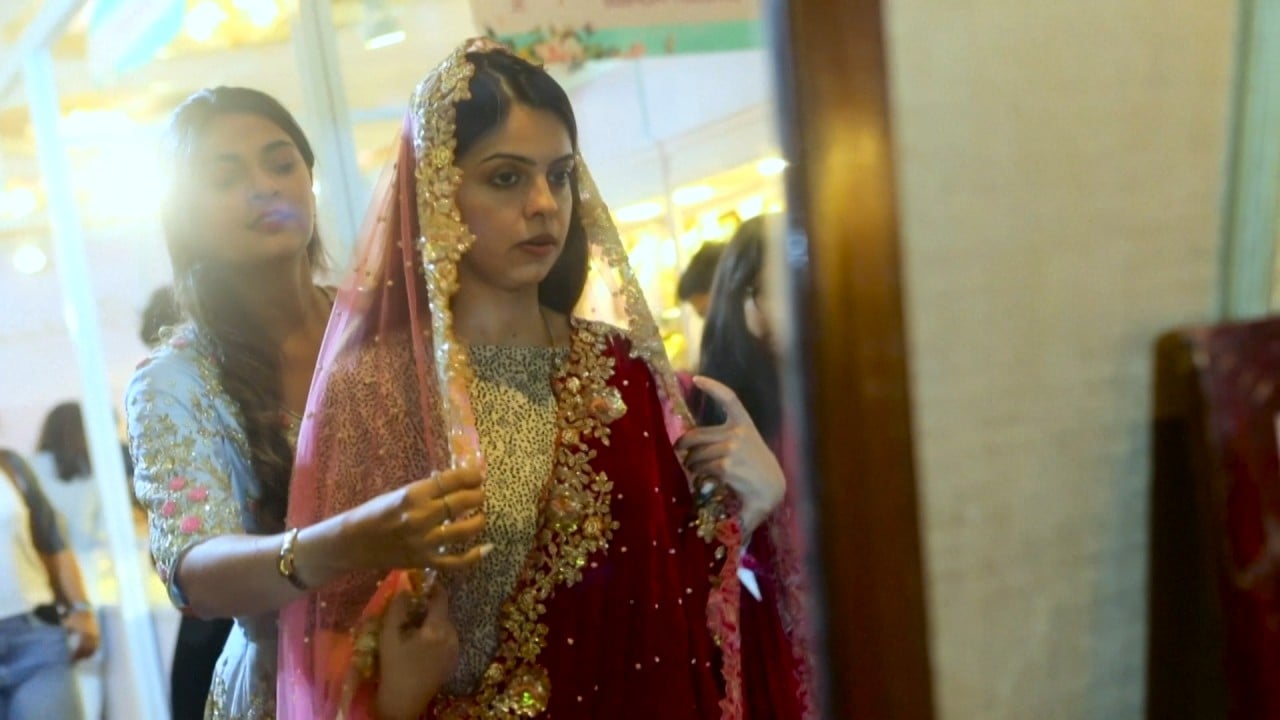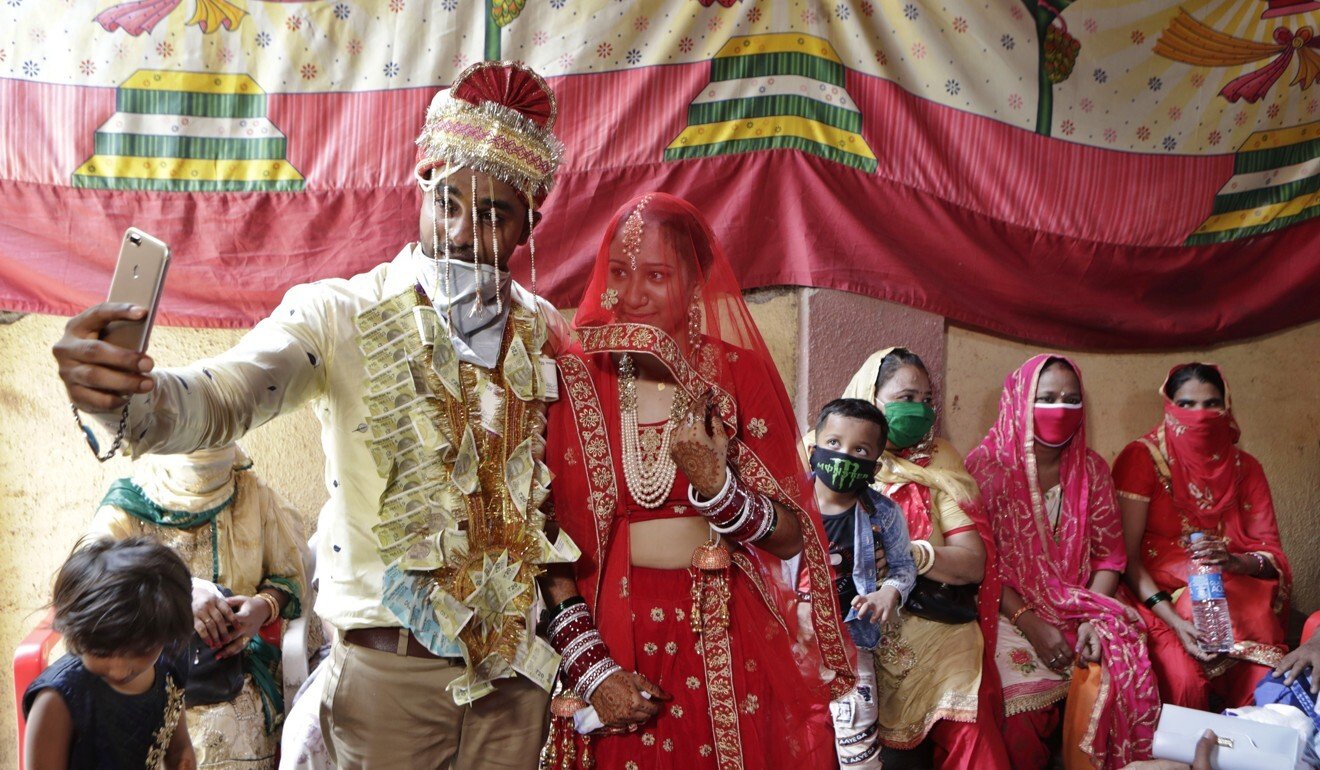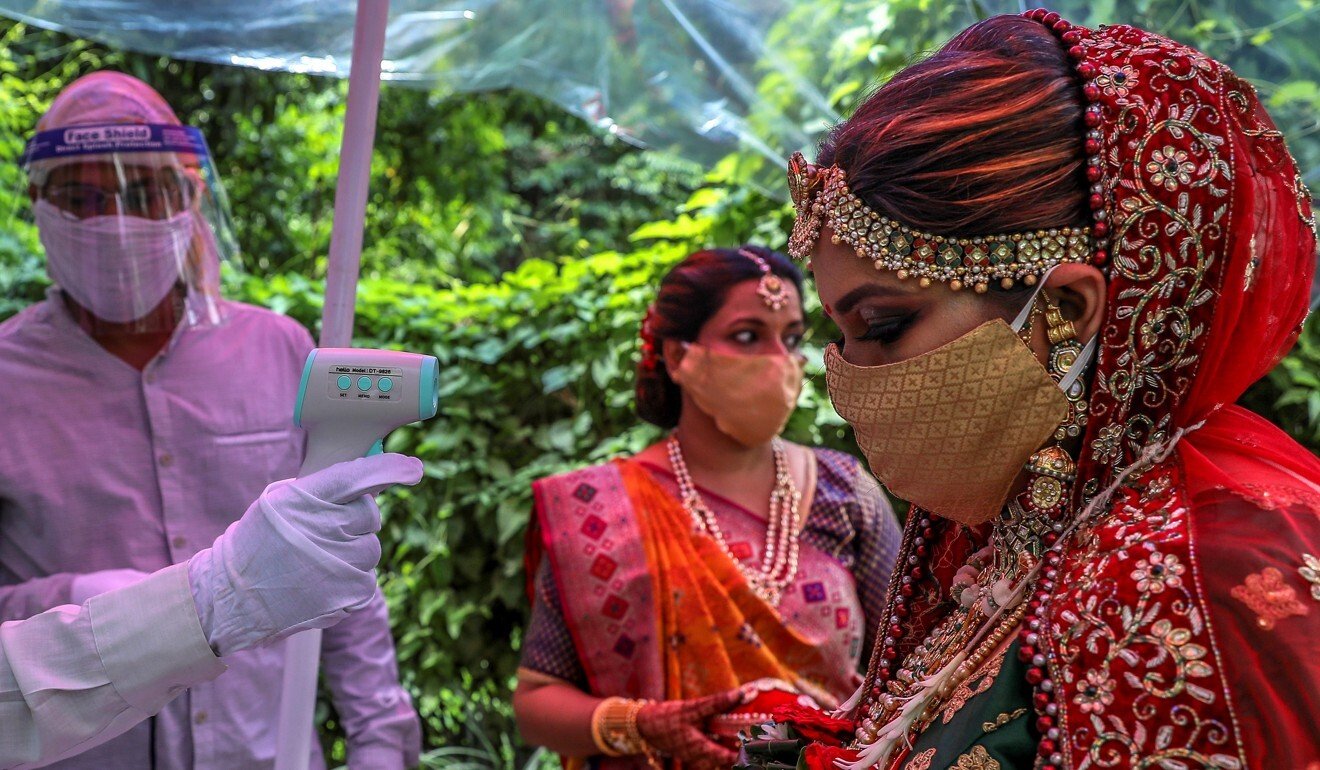
Big fat Indian weddings: coronavirus pandemic’s latest casualty?
- Millions of weddings are held every year in India, many being lavish, over-the-top celebrations that fuel an estimated US$50 billion industry
- But social distancing and attendance limits in the age of coronavirus look to have made these huge community affairs a thing of the past, for now
India’s rich take private jets to escape coronavirus-hit cities
“We have no regrets, because both of us don’t enjoy too much attention on us, but it would have been nice to have some close friends and Akbar’s brother who could not attend the wedding as he was abroad,” Shahina said.
India’s wedding market is estimated to be worth about US$50 billion, according to a report published by KPMG in 2017, with between 10-12 million ceremonies taking place each year. The average person in India is known to spend a significant chunk of their wealth on getting married.

Ordinarily, Indian weddings are gala celebrations and community affairs, which involve the coming together of families and all their relatives and friends. They are flamboyant and over-the-top, often incorporating lavish venues in far-flung destinations, haute couture bridal wear, fireworks, and exotic cuisine prepared by expert chefs. It is not uncommon for those who can afford it to hire elephants and horses for the event and fly in famous entertainers and musicians from abroad.
11 facts that show just how wealthy Mukesh Ambani really is
In general, North Indian weddings are more raucous and have alcohol, dancing and music, whereas those in the south see more money spent on gold jewellery and elaborate rituals.
Yet with the advent of Covid-19, the Indian government imposed a cap on wedding attendance of 50 people – seriously limiting the size of such events.
People don’t think it’s auspicious to postpone a wedding indefinitely
While this certainly posed a problem for the country’s wedding planners, Mahendra Gangadharan, CEO of Bangalore-based Neferrtiti Weddings who has organised more than 3,000 ceremonies in India and across the world, said it was still possible to include all the “essentials”.
He gave as an example a recent wedding he organised for a couple who had originally planned an extravagant event, but decided to scale it down “for the time being” because of Covid-19 restrictions.
“The wedding, with social distancing and safeguards, was streamed live to friends and family across the world and had the essential ceremonies,” he said. “Maybe they will have a big celebration once things settle down.”
Because “people don’t think it’s auspicious to postpone a wedding indefinitely” in India, Mahendra said he expects most people who are already engaged to “just decide to have a small wedding as allowed”. If and when a vaccine for the novel coronavirus is developed, however, he said he expects many to go ahead with the elaborate wedding plans they had previously put in place.

01:29
Lavish Indian weddings scaled down amid nation’s economic slowdown
Nisha Kapoor, who runs her own wedding planning company in Chennai and handles all the logistics from invitations and decor to entertainment, said that in India, weddings are something that every parent plans for their children from the time they are born, with every girl dreaming of the “perfect wedding”.
She said that many of her clients had put their wedding plans on hold amid the pandemic, but some couples had decided to compromise and have small, intimate weddings, with just close family and friends in attendance.
“Weddings in the near future will be smaller but might be as lavish, as most Indians do want to spend a lot of their savings on weddings,” she said.
“Once the vaccine is in the market, people will continue to plan lavish weddings – the only change may be that instead of 500 people at a five-star hotel, they might call 200 people to a beach resort, which makes it more personal,” Nisha added.

“I think that in the next few years, weddings will be more in tune with what young Indian couples want – intimate and small – rather than the ‘big community affair’ that the parents desire.”
Hospitality professional Tehzeeb Behbahany had planned to marry her pilot fiancé Ozair in April, but they had to cancel the booking for their reception venue with the onset of the pandemic.
“We did not want to put anybody at risk with a big ceremony”, she said, adding that they finally decided to have a simple nikah (signing) ceremony at her Mumbai home in June. Just 15 members of their immediate family were invited, with a live-stream link sent to everyone else.

“Many of my close friends were very upset that they could not enjoy a special biryani at my wedding and take part in the festivities. I was disappointed because I had invested in expensive wedding finery and could not wear it, but then I saw the larger picture and decided that we had to count our blessings”, she said.
“I do look forward to hosting my friends and family some day in the future, when things are better.”
But given the country’s inherent love of big celebrations and grand gestures, will the big, fat Indian wedding eventually bounce back? Or will the pandemic be a lasting lesson in frugality? Only time will tell.

